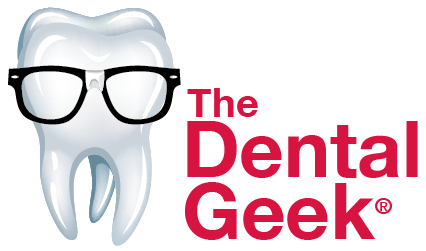How to Onboard Your New Employee: Five Tips for Success
So you think you may have found “the one” at last: the perfect new employee for your dental practice. Congratulations! After the exhaustion of writing and posting job ads, endlessly reviewing resumes, and interviewing applicants, you probably feel it’s time for a sigh of relief. After all, this candidate has all the skills and training you were looking for, and might even be able to raise the bar of your whole team in some particular area. Just remember, as exciting as this new opportunity is, there are still a few last steps to take before you relax (or not!) back into your normal routine.

Without the support of a good onboarding plan, your dream employee could turn into a nightmare. Here are five things you can do to set everyone up for success in those critical first few months.
1. Write Up an Offer of Employment. You should always make a written employment offer. This letter should include a summary of basic job information, including wages, schedule, and benefits. Providing these details in writing is required in some states, and it’s what your prospective employee is usually most interested in clarifying.
However, your offer letter is more than a nice way to say “You’re hired!” You should also include a disclaimer stating anything your employment offer is contingent upon, such as a successful background check (see next point) and the employee’s satisfactory ability to perform the essential functions of the position. A good “at-will” disclaimer is also critical. Otherwise you could inadvertently guarantee a length of employment and ruin your at-will status.
2. Do a Professional Background Check. This is not optional, no matter how perfect your candidate seems. Remember, you haven’t met the real person you’re hiring yet—only the shiny, enthusiastic job seeker who is trying to impress you. And DON’T just do a “Google check” by yourself. You can’t “un-see” protected information you may stumble upon, like an illness, pregnancy, or bankruptcy.
A professional background check involves little cost or effort, and will flag concerns and help avoid negligent hiring lawsuits later on. If your candidate has padded their resume or sued their last six employers, you need to know. You’re protecting the office from any truly dangerous surprises as well, such as malpractice caused by incompetence or malice, or a history of violent behavior.
3. Make Sure Your Team is Ready. Before your new hire’s start date, make sure existing staff members are prepared and will have time for their roles in onboarding and training. The right advance preparations can go a long way toward making sure your new hire’s first few days are productive for them, and not too disruptive to everyone else.
And no matter what skill level they are starting at, from an experienced billing specialist or hygienist to your greenest front receptionist or dental assistant, every new employee needs a mentor to show them the ropes. Make sure someone is available as support and to answer questions. The newest member of your team shouldn’t feel like their first few days are spent trying to stay out of everyone’s way.
4. Ensure a Great First Day. First impressions mean a lot. While no one expects each day at work to be amazing, how people behave on Day 1 sets the expectation for everything going forward. This means you should note any early warning signs on the employee’s part, and remember that they will be doing the same for you and your team. Going the extra mile to make your new hire feel welcome is something they’ll never forget. On the other hand, a bad initial experience could sour your working relationship before it begins.
In addition to making introductions around the office, follow a New Hire Checklist to make sure you’re covering all your bases as an employer. And schedule time to review and sign HR documents and to complete all training that needs to occur before patient interaction, including HIPAA training.
5. Use a “Getting Acquainted Period.” In some cases, despite everything you learn during the hiring process, you won’t REALLY know if someone is a good fit until they actually start doing the job. After all, what if they’re the slowest coding specialist you’ve ever had, or the clumsiest DA? You’ll want to keep the flexibility to terminate quickly if they’re not working out.
You can do this with a special policy in your employee handbook that specifies the first 90 days or so as a “getting acquainted period.” During this period, both parties can make sure the job is a good fit, and the employee could be let go at any time if things are not working out. (Have an expert draft this policy to make sure you do not inadvertently guarantee employment either during this period or afterward.) If you wish, you can wait to offer full benefits until the trial period passes.
Good luck to you and your new hire! After a few months, everyone should be settled in. By then, you’ll know for sure that you made the right hiring choice, and your amazing new team member will know they work for a company that truly wants its employees to succeed.

Leave a Reply